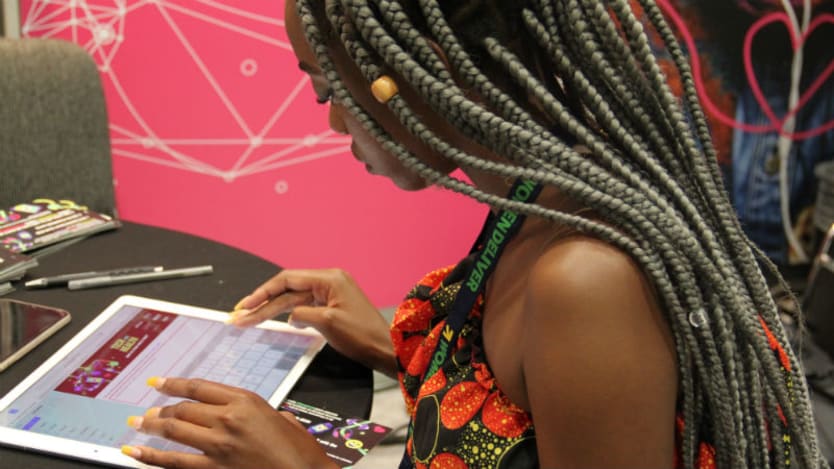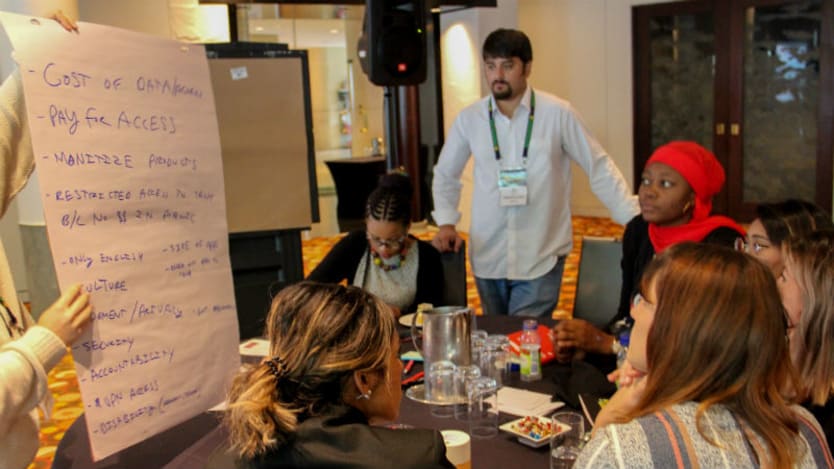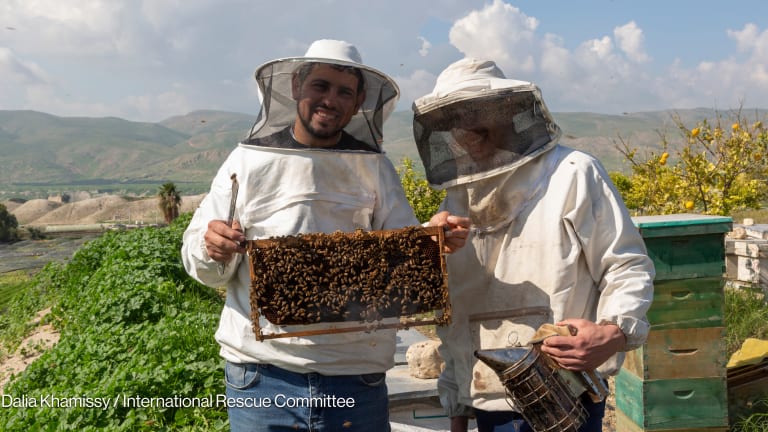
Trends showing the increasing political and social exclusion of young people worldwide have given way to debates on the disregard for their voices in the creation of policies and programs.
With the United Nation’s 2018 World Youth report informing that the success of the Sustainable Development Goals hinges on young people, more global health players are holding their hands up to the fact that they can’t do it alone. Youth participation is not just good practice, nor a marketing veneer, it's a necessity for sustainable development.
Today, technology is crucial to the provision of cost-effective, scalable, and, importantly, individualized health and care. Decisions that concern young people’s health must be informed by their respective feelings about technology as a tool that is disrupting how they experience care. How are apps influencing the way we seek health information? And how are concepts such as artificial intelligence changing the nature of health care delivery as we know it?
“Decisions that concern young people’s health must be informed by their respective feelings about technology as a tool that is disrupting how they experience care.”
—As dedicated youth participation advocates, and young leaders on the Women Deliver young leaders program, we were asked to put questions like these to paper — working with Fondation Botnar, the Partnership for Maternal, Neonatal and Child Health, PATH, Women Deliver, and with support from Devex — to design a digital consultation with young people.
Health & technology: 4 takeaways on what young people think
To learn more about what today’s young people think about technology in global health, Devex, working with Fondation Botnar, the Partnership on Maternal, Neonatal and Child Health, PATH, and Women Deliver, asked more than 1,500 young people aged 15-30 for their views.
Health & Technology: What young people really think gathered over 1,500 youth perspectives on the integration of technology into health. This is now being used as input to a 10-year coalition effort around leveraging technology to meet universal health coverage and truly leave no one behind by 2030.
Here we both reflect on the need for a youth-informed approach to development with the aim of sharing experiences with others embarking on similar work.
Integrating digital technology on the pathway to UHC
Africa’s population is expected to reach 2.5 billion by 2050 — a growth that must be met with sustainable health systems. We know that many countries do not have the infrastructure in place to understand where the gaps are and, as a result, they are falling behind on their 2030 targets. This is where digital technologies offer an opportunity we simply cannot afford to miss. By better integrating and scaling systems for real-time data collection and analysis, we can better equip our policymakers and health workers to respond to the population’s needs.
Over the past two decades, mobile internet coverage and app usage have expanded exponentially, of which young people dominate the statistics. In urban India, for example, 46% of mobile internet users are below the age of 25. At the same time, young people possess unique health needs that must be addressed if we are to realize UHC. With young people already congregating on these platforms, this intersection offers great potential for responding to their health concerns in creative and dynamic ways.

Reframing young people as nonnegotiable stakeholders
Young people should be informed decision-makers when it comes to their own health and wellbeing. Yet 2 out of 3 countries still fail to consult young people when designing poverty reduction plans and national development strategies. We long for a time when we don’t have to draw attention to statistics like these. For now, we need more efforts like the YouthBol campaign — a poll mobilizing over 100,000 youth in India to share their top health care asks with decision-makers — to make sure young people are not only valued and consulted, but have the opportunity to be heard by those with influence.
With the nature of our work, we have both been lucky enough to collaborate and exchange ideas with young people across the globe. Regardless of geography, there is a clear motivation that connects us. We are digital natives that can — and already are — helping to drive scalable impact with innovation. Take Nick Oketch, a fellow Women Deliver young leader from Nairobi, Kenya, and founder of the AI-powered Facebook chatbot, LucyBot. Oketch saw the opportunity to revolutionize the way young people access information about HIV/AIDS and sexual health on a platform they regularly use. LucyBot has now engaged more than 10,000 young people.
Findings from Health & Technology: What young people really think clearly indicate that young people see tech as critical to achieving better health outcomes. What’s more is that they are conscious and active participants when it comes to making healthy choices — 83% of respondents agreed that decisions they make now will pay off for their health in the future. Often we see young people and adolescents tied to a rebellious risk-taking narrative, but these insights — echoed by takeaways from the youth workshop held at the 2019 Women Deliver conference — stress a need to rethink the discourse. It is now our responsibility to expand their options for health-related technology.
Accountability for missing voices
For those committed to work, engaging, mobilizing, or leading young people, we strongly believe that there needs to be more accountability for the inclusion of diverse perspectives. This means being aware that we are not always fully representative of all young people from our respective regions, and it is our responsibility to find creative ways to include these viewpoints. Initiatives such as Health & Technology: What young people really think show important strides are being made in ensuring discussions around the future of health are more accessible to all and include a variety of voices.
Without technology, we cannot accelerate impact for the key health challenges young people face today. With increased vulnerability to sexual health issues, addiction and under/overnutrition, it's never been more important to find creative and dynamic ways to reach them. Safe Love for example, harnesses the rising popularity of dating apps among the younger generation in India to provide its users with sexual health information using a fun and pleasure-affirming approach.
Young people everywhere should be able to guide youth-responsive solutions like these. Having heard from budding young professionals working in low-resource countries — from biomedical engineers to community health workers — we know that they face both opportunities and challenges in bringing tech to health care delivery. In most cases, young people have the means to introduce digitally-enabled projects, but face barriers such as funding and national policies on data and security. Only when we capture important perspectives like these will we accelerate innovation in some of the most deprived communities across the globe.
Next steps
While tech use is growing, we must not forget the digital divide. Women and girls in resource limited countries are far less likely to use or own a mobile phone with barriers including costs and stereotypes around technology usage being more suited to men. A recent report from Plan International tells us that this gap is only growing. While creating innovative solutions to health problems, we must make sure the benefits can be experienced by everyone.
To achieve this, meaningful youth engagement must be integrated into more long-term strategies. We were delighted to hear that the coalition is forming an independent youth council to ensure that more young people can have their say on how tech can uphold UHC targets. The council will be hosted by Plan Canada, with advisory support from Fondation Botnar, Women Deliver, PATH and PMNCH.
Find out more about the youth council and apply here. Applications open late Sept.









